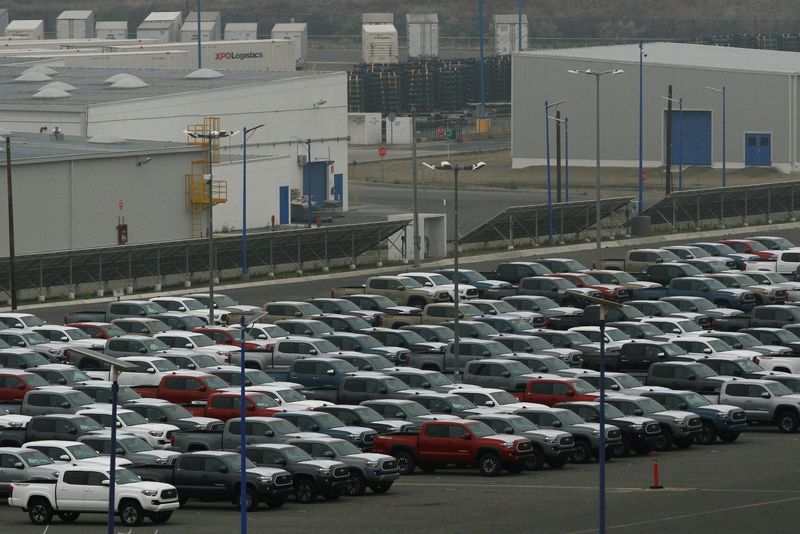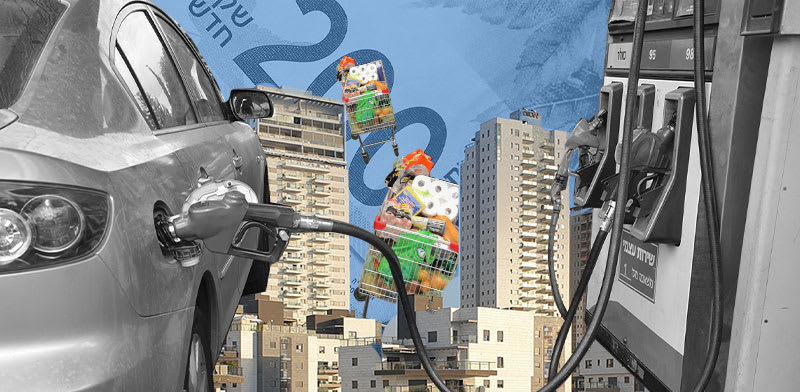[ad_1]

© Reuters. Newly assembled autos are parked on the Toyota Motor Manufacturing plant in Baja California, Tijuana, Mexico Might 31, 2019. REUTERS/Jorge Duenes/File picture
By David Shepardson
WASHINGTON (Reuters) -A gaggle representing Normal Motors (NYSE:), Toyota Motor (NYSE:), Volkswagen (ETR:) and practically all different main automakers on Monday sharply criticized the Biden administration proposal to drastically hike gas effectivity necessities.
The Alliance for Automotive Innovation mentioned the Nationwide Freeway Visitors Security Administration’s (NHTSA) Company Common Gas Financial system (CAFE) proposal was unreasonable and requested vital revisions.
The business group argued the plan would increase common car costs by $3,000 by 2032 due to penalties automakers would face for not being in compliance, including the determine “exceeds cause and can improve prices to the American shopper with completely no environmental or gas financial savings advantages.”
NHTSA in July proposed boosting necessities by 2% per 12 months for passenger vehicles and 4% per 12 months for pickup vans and SUVs from 2027 by 2032, leading to a fleet-wide common gas effectivity of 58 miles (93 km) per gallon.
The American Automotive Coverage Council, a bunch representing the Detroit Three automakers, individually on Monday urged NHTSA to halve its proposed gas economic system will increase to 2% yearly for vans, saying the proposal “would disproportionately impression the truck fleet.”
The group famous 83% of autos produced by Ford (NYSE:), GM and Chrysler guardian Stellantis (NYSE:) are vans.
The White Home and NHTSA didn’t instantly reply to requests for remark.
The auto alliance mentioned final month automakers would face greater than $14 billion in non-compliance penalties between 2027 and 2032.
U.S. automakers individually have warned the fines would price GM $6.5 billion, Stellantis $3 billion and Ford $1 billion.
Automakers additionally raised alarm on the Vitality Division’s proposal to considerably revise the way it calculates the petroleum-equivalent gas economic system score for EVs in NHTSA’s CAFE program, saying it could “devalue the gas economic system of electrical autos by 72%.”
GM mentioned on Monday it may assist NHTSA’s proposal if the Vitality Division rescinded its petroleum-equivalent proposal.
Volkswagen, which may face over $800 million in CAFE fines by 2032, mentioned NHTSA’s proposal “is bigoted, capricious, and an abuse of the company’s discretion to set requirements that aren’t possible.”
Subaru (OTC:) mentioned even when the NHTSA proposal was possible “the present proposals don’t permit for ample fleet ramp as much as the mandatory ranges of electrical autos.”
Automakers and the United Auto Staff union have beforehand additionally complained parallel guidelines proposed by the Environmental Safety Company are usually not possible and ought to be considerably softened.
[ad_2]
Source link







